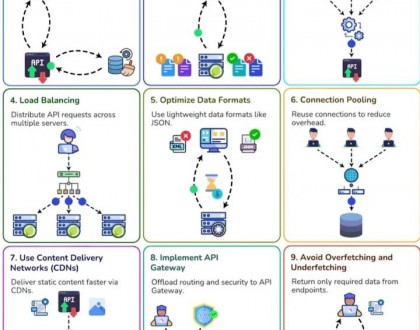GraphQL for Beginners: An Alternative to REST
Introduction to REST and its limitations
In the realm of web development, REST (Representational State Transfer) has long been a dominant architectural style for designing networked applications. However, its limitations have paved the way for a newer alternative: GraphQL.

What is GraphQL?
GraphQL is an open-source query language and runtime for APIs (Application Programming Interfaces) developed by Facebook. Unlike REST, which exposes multiple endpoints for different resources, GraphQL allows clients to request only the data they need in a single request.
Advantages of GraphQL over REST
Reduced Overfetching and Underfetching
GraphQL addresses the issue of over fetching and under fetching data commonly encountered in REST APIs. With GraphQL, clients specify the exact data they require, preventing unnecessary data fetching.
Flexible Data Retrieval
One of the key advantages of GraphQL is its flexibility in data retrieval. Clients can request multiple resources and their fields in a single query, eliminating the need for multiple API calls.
Getting started with GraphQL
Getting started with GraphQL is relatively straightforward. Setting up a GraphQL server and understanding its basic syntax are crucial initial steps.
Setting up GraphQL
To begin using GraphQL, developers need to set up a GraphQL server. Various frameworks and tools, such as Apollo Server or GraphQL Yoga, simplify this process.
Basic GraphQL syntax
Understanding the basic syntax of GraphQL involves learning about queries, mutations, types, and resolvers.
Understanding GraphQL schemas
A GraphQL schema defines the structure of data available through the API. It outlines the types, queries, mutations, and subscriptions that the API supports.
Querying data with GraphQL
GraphQL queries allow clients to request specific fields on resources. The query structure aligns with the shape of the response data, providing precise control over fetched information.
Mutating data with GraphQL
Mutations in GraphQL are used for modifying data on the server. They enable operations such as creating, updating, or deleting data.
GraphQL tools and libraries
Numerous tools and libraries exist to aid developers in working with GraphQL. These tools assist in tasks ranging from development to testing and debugging.
Integrating GraphQL into web development projects
Integrating GraphQL into web development projects involves using GraphQL clients, such as Apollo Client, to connect applications to the GraphQL server.
Common misconceptions about GraphQL
Some misconceptions persist around GraphQL, including concerns about complexity and suitability for all types of projects.
GraphQL best practices
Adhering to best practices ensures a smooth and efficient GraphQL implementation. Practices such as schema design, error handling, and performance optimization are crucial.
Security considerations with GraphQL
While GraphQL offers numerous advantages, it’s essential to address security considerations, including query complexity, authentication, and authorization.
Future of GraphQL
The future of GraphQL looks promising, with ongoing advancements, community support, and its adoption by prominent companies.
Conclusion
In conclusion, GraphQL presents a compelling alternative to REST, offering flexibility, efficiency, and improved data fetching capabilities. Embracing GraphQL can enhance the development experience and improve overall API performance.
Recommended Posts

Key Strategies to Boost API Performance in ASP.net
March 10, 2025

Building Secure APIs: Best Practices Every Developer Should Follow
February 18, 2025


